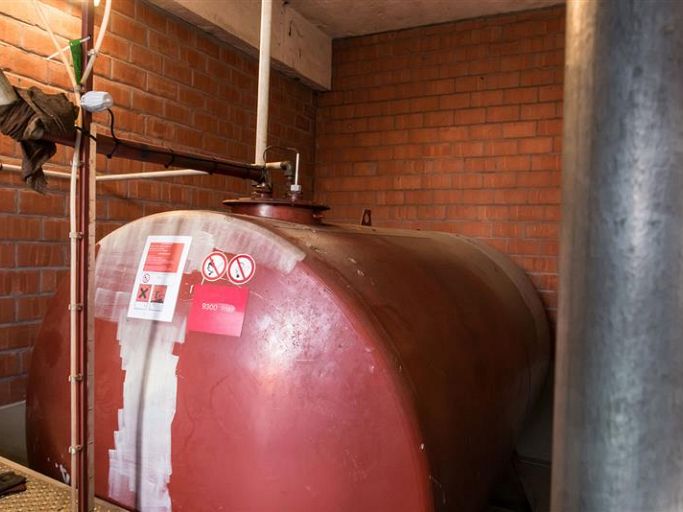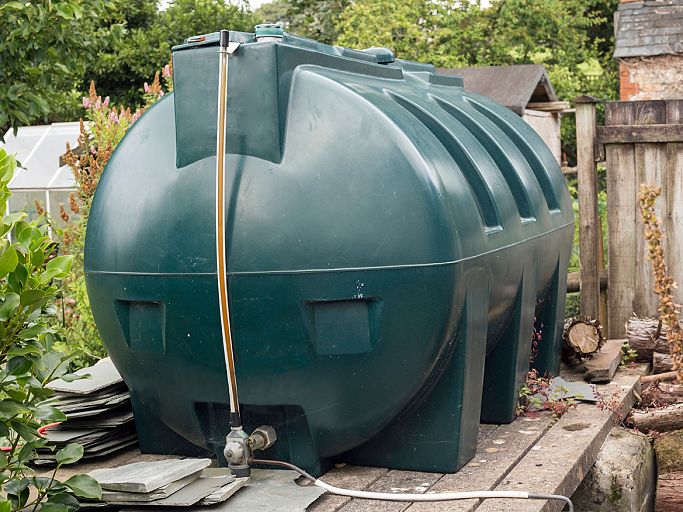- Oil
- Diesel
- Petrol
- AdBlue
- Water
- Sewage
- Hot Water Cylinders
-
Brands
- New Releases
- In Stock
- Sale
- Best Sellers
- Fuel Tank Hire
- More
-
Services
Storage Tanks and Compliance: What every business owner needs to know
1st October 2024 in oil
Author: Jack Dunn
Storage tanks play a vital role across various different industries in the UK, including manufacturing, logistics, energy and agriculture. Storing all sorts of substances, from fuel oil to water to hazardous chemicals, tanks are essential for the efficiency of many business operations. However, due to the risks storage tanks can pose, including environmental, they’re also highly regulated. Understanding and sticking to these regulations is essential - not only to stay ‘the right side of the law’ but to avoid financial penalties and, perhaps most importantly, to protect both public health and the environment.
Here, we’ll outline the importance of storage tanks, the regulatory landscape and the steps that businesses must take to ensure they comply with regulations.
The importance of Storage Tanks in business
Storage tanks are integral to a wide range of business sectors. In agriculture they’re used to store supplies of pesticides, fertilisers and water. Fuel and energy companies use storage tanks to manage fuel and chemicals for production and distribution. Manufacturing industries rely on tanks to hold hazardous waste, raw materials and final products. Logistics and transport businesses use storage tanks for fuel, oil and lubricant to ensure the smooth operation of their fleets.
With their crucial function in keeping operations running, storage tanks are an important asset to businesses. However, without regulation and maintenance, poorly managed storage tanks could lead to leaks, spills and other typers of accident, which may not only damage the environment but can also put employees and communities at risk.
Storage tanks and regulations
In the UK there is a comprehensive framework of regulations designed to ensure storage tank compliance. Businesses - especially those which are storing hazardous substances - must be aware of the relevant legislation. This includes the Control of Pollution (Oil Storage) (England) 2001 plus other environment-focused directives. While the specific guidelines might vary based on the type of substance they’re addressing, the capacity of the tank used, and its physical location and position, the focus remains on preventing pollution.
In addition to regulations, the Environment Agency provides standards for tank structure, secondary containment and the requirement for regular maintenance.
Non-negotiable compliance
If a business doesn’t comply with the regulations and standards around tanks, it can result in various negative consequences including financial penalties (which can run into thousands of pounds) plus harm to the company’s public image – not to mention damage to the environment. A single leak from a storage tank containing oil or chemicals can cause long-term soil contamination and water pollution, which can lead to a costly clean-up operation.
In the UK, the Environment Agency is authorised to issue fines and even shut down operations if a business fails to meet standards. The scale of fines can escalate if the relevant authorities discover deliberate negligence or repeated non-compliance. They is also the danger of a business having to face civil lawsuits or claims if non-compliance causes harm to communities or other businesses.
Environmental and legal
Leaks, spills, and contaminations caused by faulty or neglected tanks are detrimental to ecosystems, as they affect soil quality, water sources and wildlife habitats. Oil, for example, is especially harmful when it reaches water, causing major disruption to aquatic life - and also very challenging to clean up. Also, hazardous chemicals released into soil or water sources pose serious health risks to humans, contaminating drinking water and affecting food production.
From a legal position, UK storage tank legislation places stringent liability on business owners. If there is a failure to prevent or address pollution incidents it will lead to criminal charges and, doubtlessly, hefty fines. The Environmental Protection Act 1990 empowers enforcement agencies to hold businesses accountable for pollution, requiring not only the payment of fines but also payment of clean-up costs.
In the most severe cases, the company’s directors or officers could face legal action if they are found to have been directly responsible for breaches of the regulations. Legal consequences might also extend to the loss of permits or operational licences, which can seriously jeopardise the long-term viability of a business.
Best compliance practices
Given the serious implications of non-compliance that we’ve discussed in the previous section, it’s essential for businesses to be proactive and adopt measures to meet all storage tank regulations.
- Tank construction and installation: Ensuring that tanks are designed, constructed, and installed according to the relevant regulations is the first step. They must be compatible with the substance they store (whether that’s fuel, oil, chemicals or water) and they should include features which will prevent leaks. These include having a suitable base, fittings to prevent overfilling and bunding (in other words, secondary containment) which should have a capacity of at least 110% of the tank's maximum content so that it can contain accidental spills.
- Inspections and maintenance: Routine inspections are really important as they offer the chance to identify any potential problems before they escalate. Your maintenance schedules should be adhered to diligently and not allowed to slide, with inspections to assess tank integrity, bunds, pipework and leak detection systems. Professional tank companies can be enlisted to do these inspections, as they’re experts at detecting the issues that won’t be immediately visible to untrained personnel.
- Leak detection systems: These are critical for high-risk storage tanks. Leak detection systems enable businesses to monitor tank levels and detect leaks early, minimising the likelihood of a significant spill. Using automated alerts as part of these systems can enhance response times and prevent small issues from developing and becoming costly.
- Records: Regulatory bodies often require documentation to prove compliance, so your business must maintain accurate records of all of the inspections, maintenance, repairs and incidents to do with your tank (or tanks). This helps to demonstrate due diligence, and in the event of an incident it can serve as evidence that the business followed necessary compliance.
- Employee training: A compliant tank management strategy also includes training staff so that they understand the requirements of regulations and the importance of early reporting issues of any kind. Employees who work directly with storage tanks should be very aware of the potential environmental impact and be well trained in how to respond quickly to prevent or contain spills.
The future
Storage tank compliance is not just a legal obligation but a responsibility toward public health and environmental conservation. With the world becoming more and more focused on sustainability and environmental responsibility, it’s highly probable that regulations around storage tanks will become stricter in the coming years, particularly as the UK has a stated aim to reach net-zero carbon emissions by 2050. Business owners should therefore make a consistent effort to remain informed about any current legislation and, as a priority, integrate these things into business operations. Here at Tanks R Us we can provide the right tanks for you and your business, and we’re also happy to offer advice.
One of the largest selections of tanks in the UK
Chat online or call us today on 01469 531229
Related Products
More Articles

How to Prevent Oil Theft – 8 Security Measures
1st August 2022 in oil

7 signs your oil tank needs replacing
4th August 2022 in oil

What are the advantages of a bunded oil tank?
6th August 2022 in oil

Our top 8 ways to maintain your oil tank
8th August 2022 in oil
Help
About Us
My Account
Newsletter Sign Up
Inspiration direct to your inbox, please enter your email below...
Help About Us My Account
© Tanks R Us. All rights reserved. Registered in England. Registration number. 05804332. VAT number 364402764
Designed and produced by Kal Group